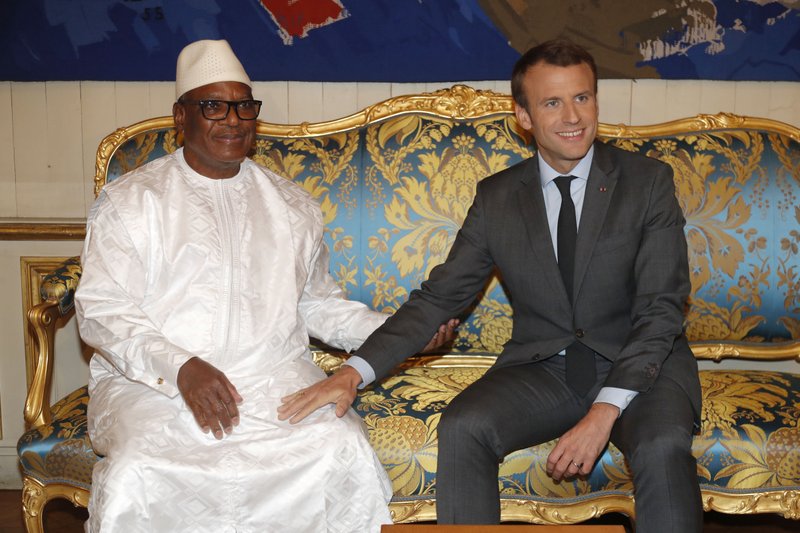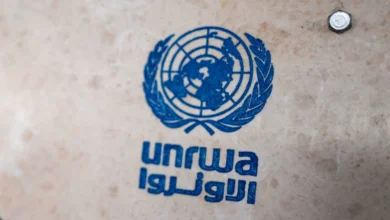
Presidents, princes and diplomats are coming to Paris on Wednesday to breathe life into a young African military force that aims to counter the growing jihadi threat in the Sahel region.
Nearly five years after France intervened to rout Islamist extremists in northern Mali, then controlled by an al-Qaida affiliate, the threat has spread to neighboring countries in the volatile region. It has also spawned new jihadi groups, including one that claims affiliation with the Islamic State group, recently defeated in Iraq and nearly pummeled in Syria.
The five-nation force, known as G5 Sahel, was launched in Bamako, Mali on July 2 with French President Emmanuel Macron present. It aims to tackle the jihadi menace, organized crime and human trafficking. Macron has taken the lead on convincing partners to help make the force viable, because the fate of the Sahel region impacts Europe.
“Terrorists, thugs and assassins” must be eradicated, he said in Bamako.
Made up of soldiers from Mali, Niger, Burkina Faso, Mauritania and Chad, the fledgling force is to grow to a 5,000-strong army by March but is still in need of soldiers, training, operational autonomy and funding.
Wednesday’s conference at a chateau in La Celle-Saint-Cloud, west of Paris, brings together the leaders of the five nations making up the force, plus European leaders including German Chancellor Angela Merkel. Officials from the European Union, the African Union and the UN are also attending, as well as envoys from Saudi Arabia and the United Arab Emirates.
While funding is not the leading topic, Saudi Arabia could be among those announcing a contribution, an official in the French president’s office said. A special funding conference is to be held in February.
Wednesday’s meeting aims to “increase mobilization” for the force, militarily, politically and financially, said the official, who could not be named because he was not authorized to speak publicly.
In recent months, security forces and the UN peacekeeping mission have been prime jihadi targets in the Sahel.
Four UN peacekeepers and a Malian soldier were killed in two attacks in Mali less than a month ago. In Niger, 13 soldiers died in October, weeks after four US troops and four Niger soldiers were killed in a remote corner of Niger. Burkina Faso also saw August attack that killed 18 in an upscale restaurant in its capital of Ouagadougou.
The G5 Sahel force will at first concentrate on the border regions shared by Mali, Niger and Burkina Faso, where it led its first operation in November and where numerous attacks have been centered.
French officials estimate extremists to number no more than 1,000 — compared to several thousand in northern Mali in 2013, when France intervened. But the numbers are deceptive, failing to reflect the danger and difficulty of hunting down an enemy in a vast region the size of Europe that is covered with difficult rock and desert terrain.
“The Sahel countries face a fleeting enemy that can get support from the population, that can easily disappear … because a camp of these terrorists resembles a camp of shepherds or civilians,” a top military official said. “The identification, the localization remains very difficult.”
He asked not to be identified because he was not authorized to speak publicly in keeping with military rules.
France’s nearly 4,000-strong Barkhane force, launched in 2014, scouts out armed extremists and gives critical air, intelligence and other support to the G5 Sahel force. A 12,000-strong UN peacekeeping mission is also in Mali to try to stabilize the volatile country.




